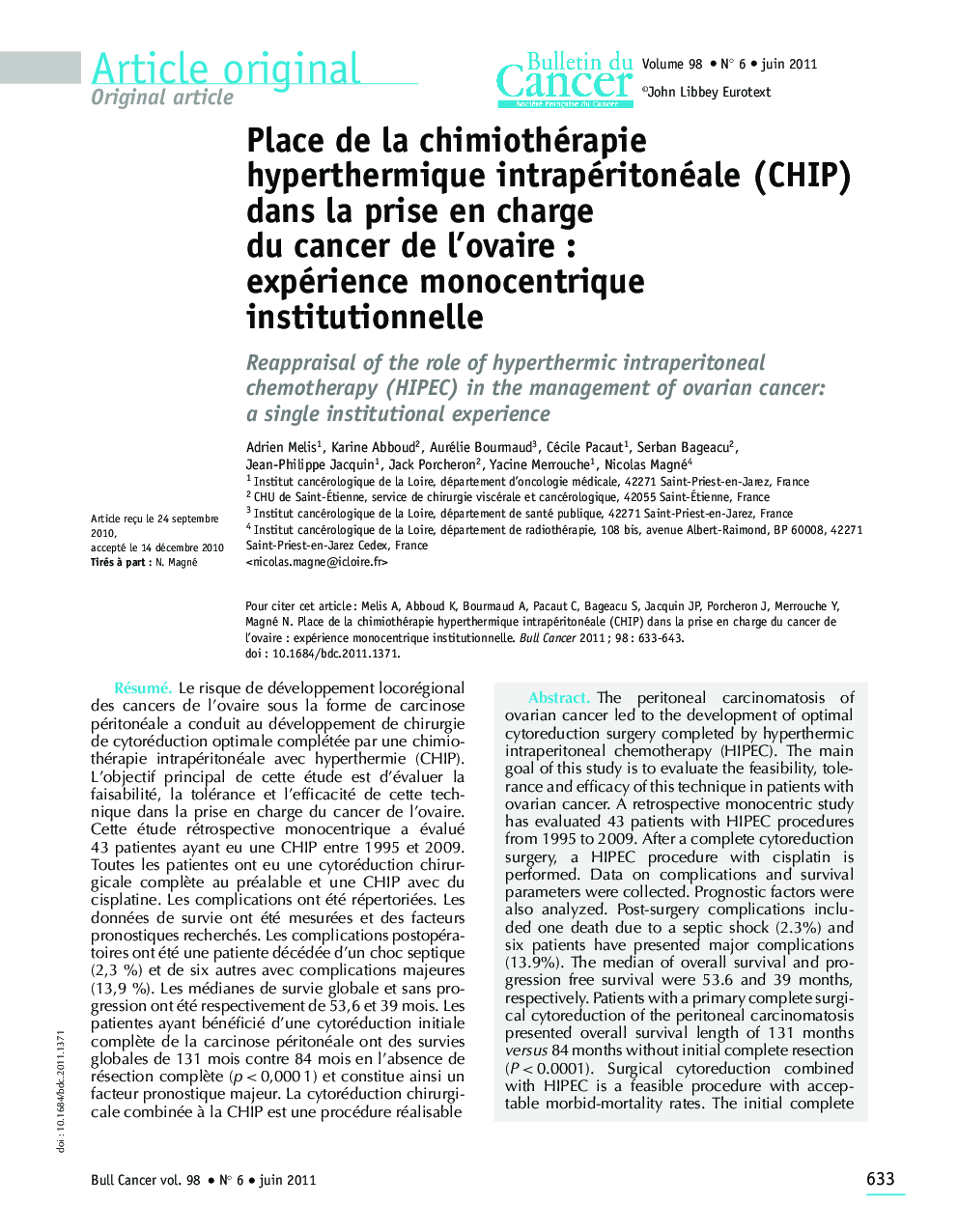| Article ID | Journal | Published Year | Pages | File Type |
|---|---|---|---|---|
| 3979046 | Bulletin du Cancer | 2011 | 11 Pages |
Abstract
The peritoneal carcinomatosis of ovarian cancer led to the development of optimal cytoreduction surgery completed by hyperthermic intraperitoneal chemotherapy (HIPEC). The main goal of this study is to evaluate the feasibility, tolerance and efficacy of this technique in patients with ovarian cancer. A retrospective monocentric study has evaluated 43Â patients with HIPEC procedures from 1995 to 2009. After a complete cytoreduction surgery, a HIPEC procedure with cisplatin is performed. Data on complications and survival parameters were collected. Prognostic factors were also analyzed. Post-surgery complications included one death due to a septic shock (2.3%) and six patients have presented major complications (13.9%). The median of overall survival and progression free survival were 53.6 and 39Â months, respectively. Patients with a primary complete surgical cytoreduction of the peritoneal carcinomatosis presented overall survival length of 131Â months versus 84Â months without initial complete resection (PÂ <Â 0.0001). Surgical cytoreduction combined with HIPEC is a feasible procedure with acceptable morbid-mortality rates. The initial complete resection of the peritoneal carcinomatosis significantly increases survival and represents a strong prognostic factor.
Keywords
Related Topics
Health Sciences
Medicine and Dentistry
Oncology
Authors
Adrien Melis, Karine Abboud, Aurélie Bourmaud, Cécile Pacaut, Serban Bageacu, Jean-Philippe Jacquin, Jack Porcheron, Yacine Merrouche, Nicolas Magné,
